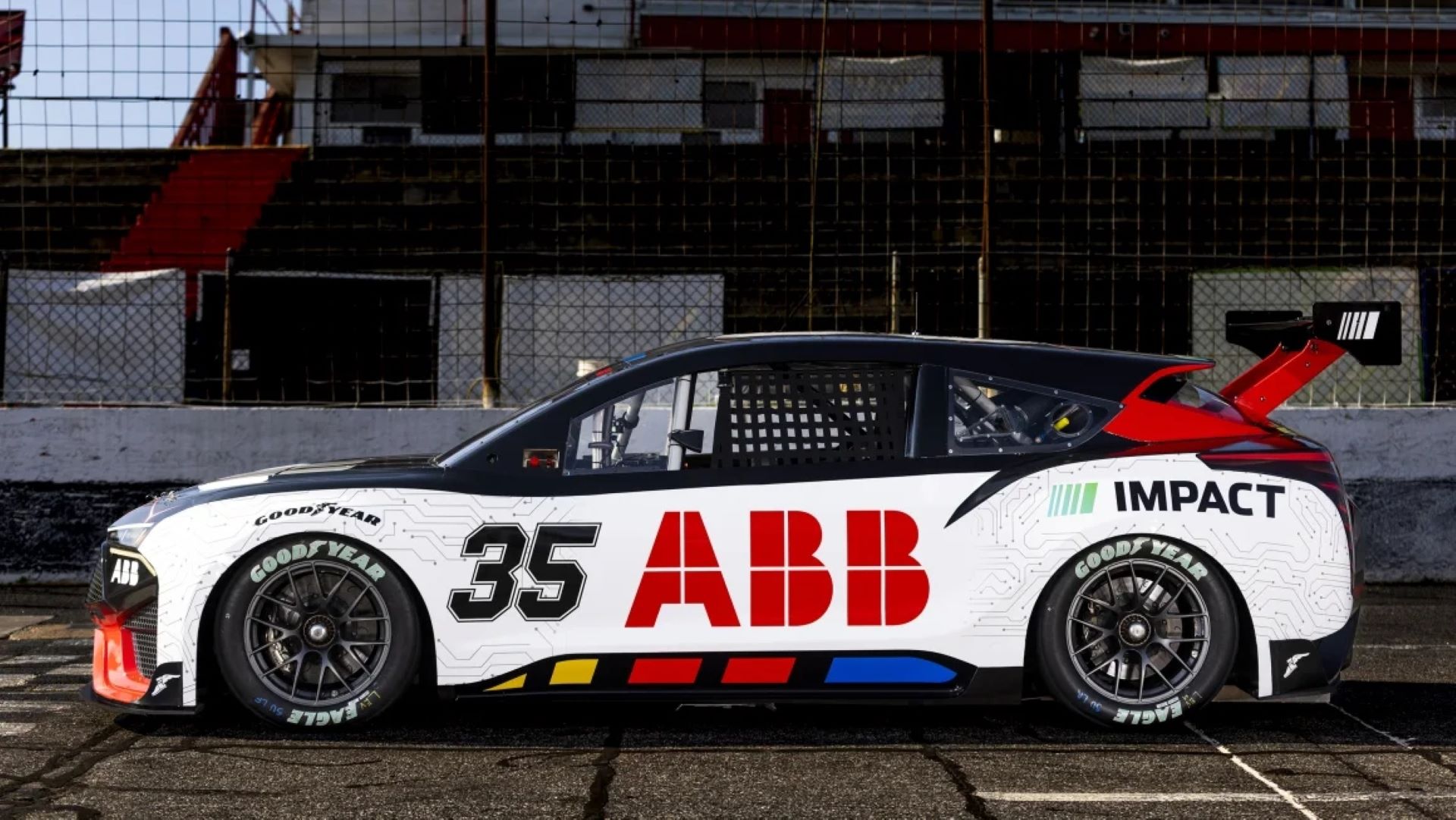

Today’s NASCAR stock cars have basically nothing in common with what normal people drive on the road. But the racing vehicles are supposed to be associated with regular traffic—hence the whole “race on Sunday, sell on Monday” thing. Sedans and coupes aren’t really default daily drivers anymore though, are they? This electric crossover SUV concept that NASCAR has trotted out might bring the series more in line with the idea of racing vehicle shapes that kids can recognize in their driveways. But the series isn’t ditching V8s just yet.
Making its debut at this weekend’s Chicago Street Race, the ABB NASCAR EV Prototype is a track-tested battery-electric stock car. Powered by three motors (one in front, two in the rear) and a 78-kWh battery, the all-wheel-drive NASCAR BEV can produce 1,000 kW of peak power. That converts to a little more than 1,300 horsepower. Ka-chow!

Other than the fact there are NASCAR stickers on it, though, this racing prototype doesn’t look like an oval dominator. But underneath its SUV-shaped sheet metal is a Next Gen chassis. NASCAR also says the prototype’s steering, suspension, brakes, and wheels are all gleaned from a NASCAR Cup Series car. The vehicle was built in-house and shares similarities not only with Next Gen cars but also the Garage 56 entries at the 24 Hours of Le Mans
So, what’s the point of it? To showcase NASCAR’s sustainability goals of the future today. Something like that.
The EV prototype was developed through a partnership with sustainability and technology leader ABB, a founding partner of NASCAR Impact. NASCAR Impact is the racing series’ umbrella term for its efforts to promote sustainability, community engagement, and other social initiatives. Its core focus, however, is to shepherd NASCAR’s goal of reaching a net-zero carbon footprint by 2035.
Don’t worry, that target is specific to NASCAR’s core operations (i.e., renewable energy sources at tracks, on-site EV charging stations, etc.) and has nothing to do with the on-track V8-powered racing. The sounds and smell of racing fuel and burning rubber aren’t going away anytime soon.
But NASCAR has long endeavored to maintain relevancy, and modernization is key that success. The Next Gen car, which debuted in 2022, not only equalized the vehicles but also allowed its quality, dependability, and reliability to translate directly into commuter cars. The racing fuel also changed to its current mix of gasoline (85%) and ethanol (15%), but look for that to evolve into a more sustainable fuel source.

Now, the front office is aware that some racing fans are opposed to electrification and have zero interest in it on the road and on the track. But John Probst, NASCAR senior vice president of racing development, suggests there’s always another side to that coin. He told CNN that motorsports fans are EV curious, per NASCAR research. The EV prototype is one way to start and continue that conversation.
Race cars are, generally, cars and not crossovers or SUVs. But new vehicle sales flip that script. The EV Prototype design was a collaboration with NASCAR OEM partners Chevy, Ford, and Toyota—automakers who might know a thing or two about family-friendly crossovers. But the multi-partner collab is why the NASCAR prototype features a “generic CUV body.” Nevertheless, why not showcase a race-ready performance version of what people buy anyway? It would definitely give the soccer moms and dads more clout during school drop-offs.